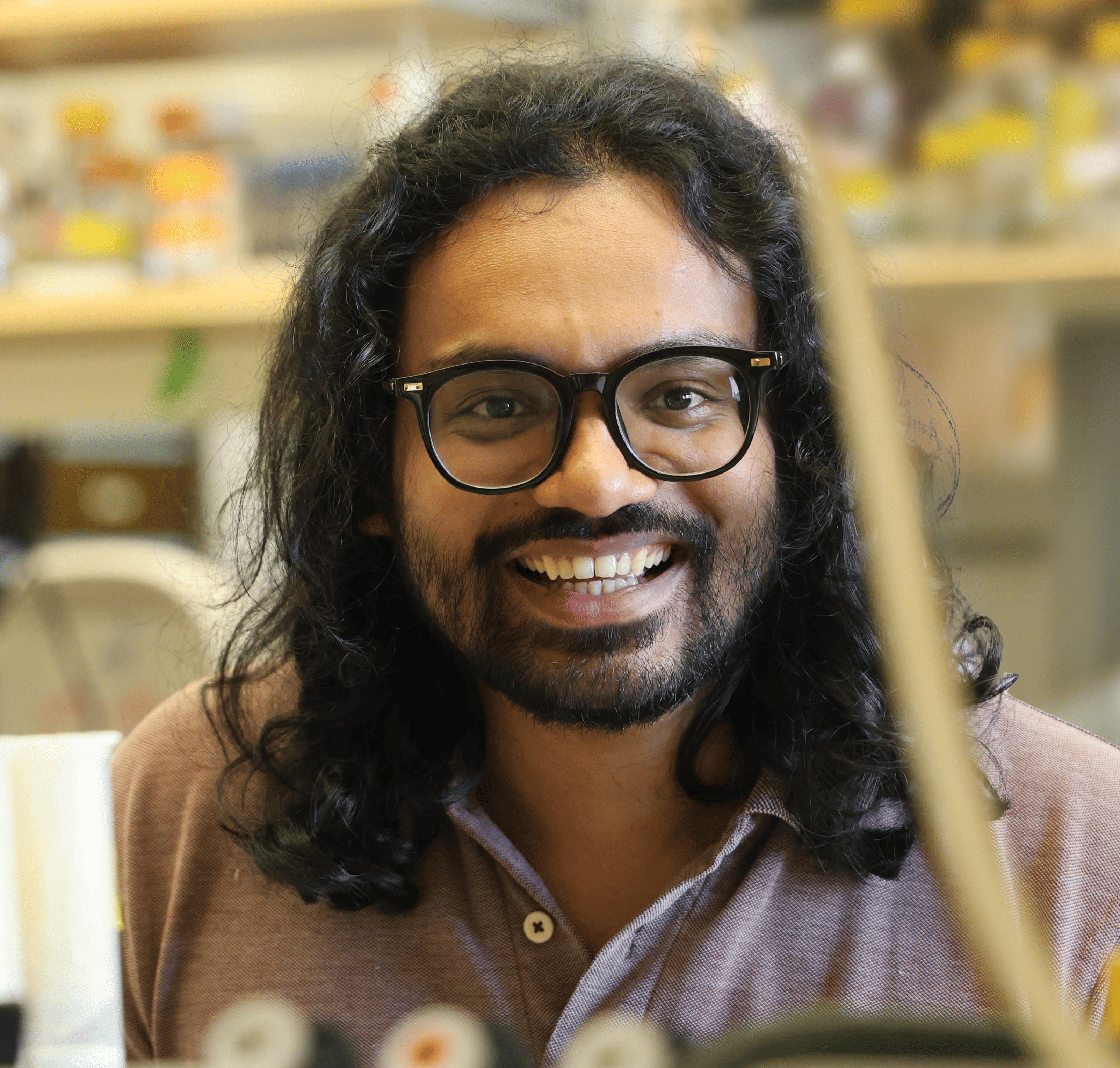Dr. Aravindabharathi Ramakrishnan is exploring how cancers exploit the TGF-β1 pathway for protection, so that he can develop strategies to overcome its effects and improve the immune system’s ability to eliminate tumors.
TGF-β1 is a signaling protein that suppresses the activity of immune cells and protects us against excessive autoimmune reactions. Unfortunately, cancer can co-opt this pathway to shield tumors from our immune system. Blocking TGF-β1 could therefore be an important intervention that allows cancer cells to be recognized and targeted by our immune systems, but it must be done in a cancer-specific way to reduce the risk of autoimmune disease. One potential way to block its activity could be targeting the activation of TGF-β1 (from its inert precursor “proTGF-β1). Specifically, Dr. Ramakrishnan is investigating how a protein called ⍺Vβ8 activates proTGF-β1 in cancer through a force-independent mechanism. Through his CRI fellowship, he hopes to identify the structural features unique to ⍺Vβ8 that allow force-independent activation of proTGF-β1 and as well as other molecules that assist in this process. Overall, his research seeks to shed light on these TGB-β1-related mechanisms that allow cancer to escape the immune system in order to design ways to disrupt its effects.
Projects and Grants
Mechanisms of force-independent activation of TGF-β1 by integrin ⍺Vβ8
Boston Children’s Hospital | All Cancers| 2023 | Timothy Springer, PhD

